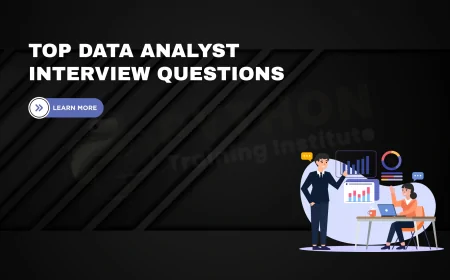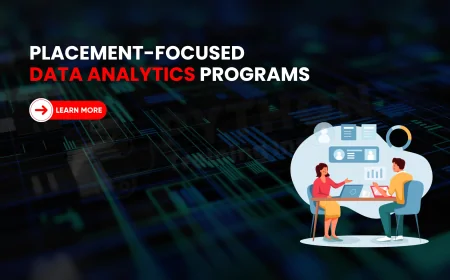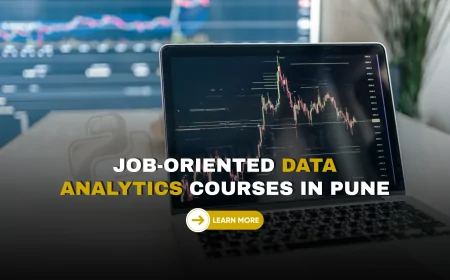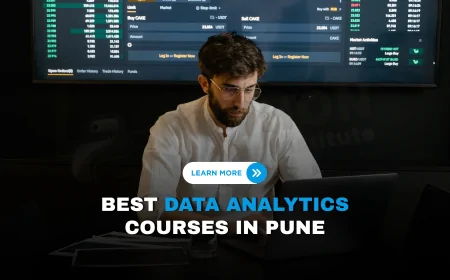Full-Stack Web Development Using Python in Pune | Python Full Stack Web Development Program in Pune
Master full-stack web development using Python in Pune. Learn Django, Flask, front-end tools, and real-world projects with certification.
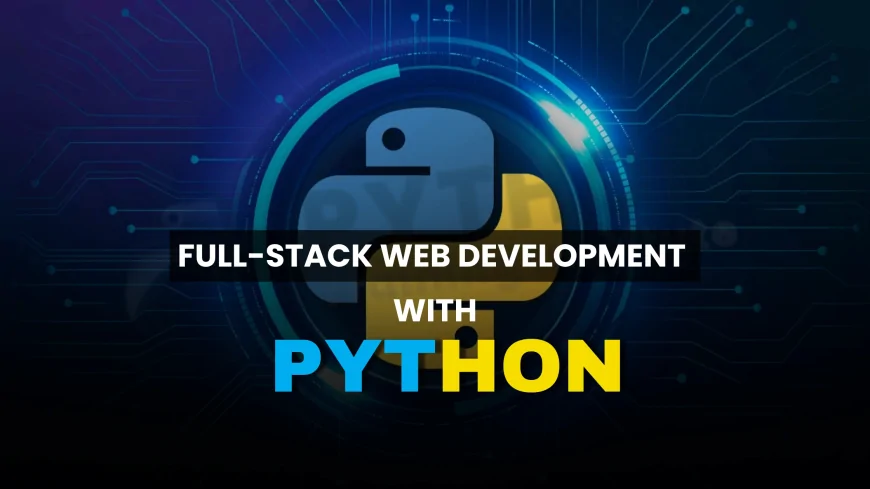
Table of Contents
- 1. Why Full-Stack with Python?
- 2. Pune’s Job Landscape
- 3. Who Should Enroll?
- 4. Core Tech Stack
- 5. Choosing the Right Course
- 6. Top Courses in Pune
- 7. Curriculum & Project Work
- 8. Learning Formats
- 9. Career & Salary Expectations
- 10. FAQs
- 11. Conclusion
Why Full-Stack with Python?
Python is versatile, readable, and supported by frameworks like Django and Flask which simplify full-stack development. In Pune’s booming startup ecosystem, companies seek developers who can handle both façade and foundation—from intuitive UI to seamless database integration.
Pune’s Job Landscape
Full-stack roles in Pune range from INR 5–20 LPA, depending on experience. Emerging startups, product companies, and consulting firms need Python developers with end-to-end web skills to launch MVPs and scale platforms.
Who Should Enroll?
- Graduates entering web development
- Backend engineers expanding into frontend
- Freelancers building end-to-end solutions
- Startup teams needing MVP-ready developers
- Career switchers aiming for web roles
Core Tech Stack
- Frontend: HTML5, CSS3, JavaScript, Bootstrap/Vue/React
- Backend: Python, Django/Flask, REST APIs
- Database: SQLite/MySQL/PostgreSQL
- Tools: Git, Docker, CI/CD, cloud deployment
- Testing: pytest, Selenium
Choosing the Right Course
- Live instructor-led vs self-paced
- Project inclusion: real-world apps
- Commitment to career support & certification
- Batch formats: weekday, weekend, hybrid
- Fee structure and EMI availability
Top Full-Stack Python Courses in Pune
WebAsha Technologies is a leading institute in Pune for full-stack Python training, offering skill-driven programs with a strong focus on real-world projects, career support, and recognized certification.
1. Full‑Stack Python Developer Course
2. Full‑Stack Mini Bootcamp with React
3. Capstone‑Led Full‑Stack Intensive
Across all programs, students gain:
- Hands-on live projects: e-commerce, dashboards, blogs, task managers
- Tools & frameworks: HTML, CSS, JavaScript, React, Django, Flask, MySQL, MongoDB, Docker, Heroku, AWS
- Career support: GitHub portfolio building, interview prep, placement assistance
- Official certification: WebAsha Certified Full‑Stack Python Developer
Curriculum & Project Work
Options typically include:
- Python essentials & OOP
- Frontend: responsive web design
- Backend frameworks & REST API development
- Database design & ORM usage
- Authentication & security best practices
- Deployment with Docker/AWS
- Capstone: eCommerce site, social platform, data dashboard
Learning Formats
- Online Live: Interactive sessions with recordings
- Offline Classroom: Peer coding and face-to-face labs
- Hybrid Model: Best of both worlds
- Weekend Bootcamps: Flexible for working professionals
Career & Salary Expectations
Entry-level developers start ~₹4–6 LPA; with experience and projects, mid-level roles fetch ₹8–15 LPA. Full-stack roles often unlock management and lead developer tracks.
Frequently Asked Questions (FAQs)
1. Do I need prior coding experience?
Not always. Many courses begin with fundamentals and guide you through to advanced projects.
2. How soon can I start applying for jobs?
Build a portfolio during the course; 6–8 weeks into a 12-week track is a typical time to begin job searches.
3. Will I work on real projects?
Yes—courses usually include 2–3 real-world applications by the end.
4. Is full-stack harder than front-end alone?
Yes, but it also brings higher demand and pay. The learning curve is steady if paced well.
5. Do courses include DevOps?
Leading tracks include Docker, CI/CD pipelines, and AWS/Heroku deployment.
6. What certification do I get?
You’ll receive institute certification; some also prepare you for global exams like PCAP.
7. What is the batch size?
Ranges from 10–25 for personal attention. Hybrid/model batches may be larger.
8. Are classes recorded?
Yes—live sessions are recorded and accessible after class.
9. Do I get placement help?
Yes—connecting with recruiters, mock interviews, and resume feedback are common features.
10. Hardware requirements?
A laptop with 8+GB RAM; installation guides are usually provided.
11. Can I attend remotely?
Hybrid and fully online models cater to remote learners.
12. Do I need to code daily?
Yes—consistent practice is key in full-stack learning; expect 10–15 hrs/week.
13. Are financing options available?
Yes—most institutes offer EMI or early-bird discounts.
14. Can I join mid-batch?
Depends on the institute policy—often allowed if seats are available.
15. Do I learn JavaScript frameworks?
Basic UI work is covered; some courses include React or Vue modules.
16. Will I deploy an app?
Yes—deploy your capstone projects live.
17. Is full-stack suitable for startups?
Absolutely—founders value full-stack devs for MVPs and rapid launches.
18. How do I choose a course?
Compare curriculum, project count, placement support, and reviews.
19. Can I freelance after this?
Yes—your portfolio will be strong enough for freelance gigs.
20. What should I learn next?
After full-stack, consider microservices, cloud architecture, or AI/ML integration.
Conclusion
Becoming a full-stack Python developer in Pune gives you unmatched versatility in the tech landscape. By mastering both front-end and back-end, you become an asset to startups, product teams, and agencies. Courses from WebAsha deliver practical curriculum, real-world projects, and career support—all within structured formats that fit your schedule. Your next step: choose a course aligned with your goals, build your portfolio, and get ready to launch a successful full-stack Python career in Pune!
What's Your Reaction?
 Like
0
Like
0
 Dislike
0
Dislike
0
 Love
0
Love
0
 Funny
0
Funny
0
 Angry
0
Angry
0
 Sad
0
Sad
0
 Wow
0
Wow
0






